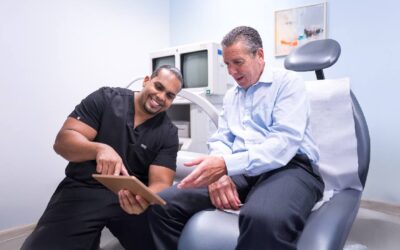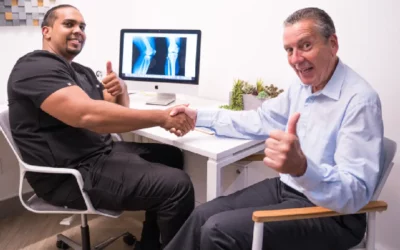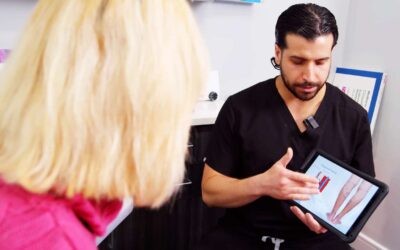What To Do for Leg Cramps?
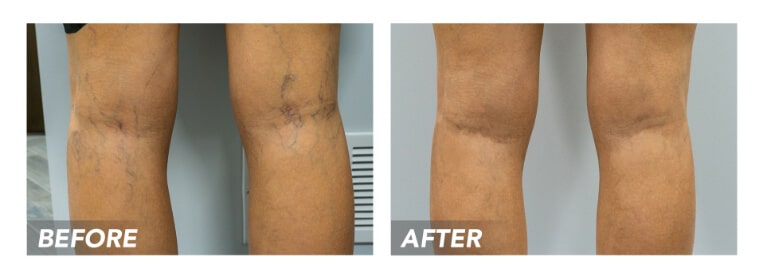
If you experience a sudden painful cramp in your leg muscles, you know how debilitating it can be. Leg cramps, also known as muscle spasms or charley horses, can occur for a variety of reasons, including dehydration, overuse, and chronic venous insufficiency or varicose veins.
At New Jersey Vein Treatment, we specialize in diagnosing and treating vein-related leg cramps through minimally invasive treatments, such as sclerotherapy, endovenous laser ablation, radiofrequency ablation, VenaSeal, and ambulatory phlebectomy. This article covers what to do for leg cramps and how to prevent them from recurring.
Diagnosing the Root Cause of Leg Cramps
At New Jersey Vein Treatment, we always diagnose the root cause of leg cramps before curating a personalized treatment plan. Duplex ultrasound is a non-invasive diagnostic tool that uses sound waves to create images of the veins in your legs. This helps us identify any underlying venous insufficiency or varicose veins that may be contributing to your leg cramps. Once we have a complete picture of your condition, we recommend the best treatment plan.
Minimally Invasive Treatments for Leg Cramps
At New Jersey Vein Treatment, we specialize in minimally invasive treatments for venous insufficiency and varicose veins. These treatments are highly effective and have a very low risk of complications. Some of the treatments we offer include sclerotherapy, endovenous laser ablation, radiofrequency ablation, venaseal, and ambulatory phlebectomy.
Sclerotherapy
Sclerotherapy is a popular treatment for spider veins and small varicose veins. During the procedure, a solution is injected into the affected veins using a very fine needle. The solution causes the walls of the veins to stick together, eventually closing off the vein. Over time, the body absorbs the closed-off vein, resulting in clearer, smoother-looking skin. This treatment can remove spider veins and small varicose veins, which may contribute to leg cramps.
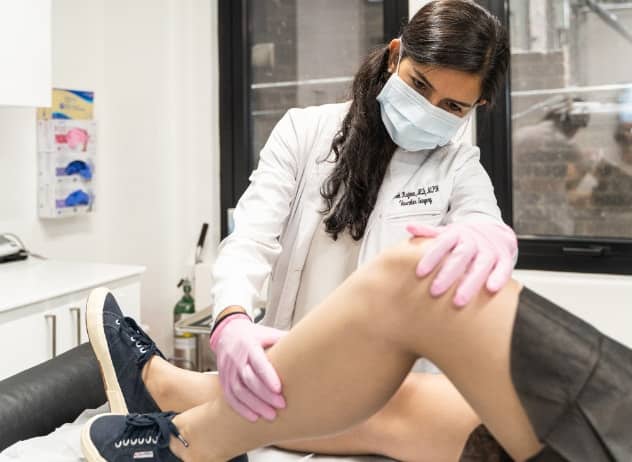
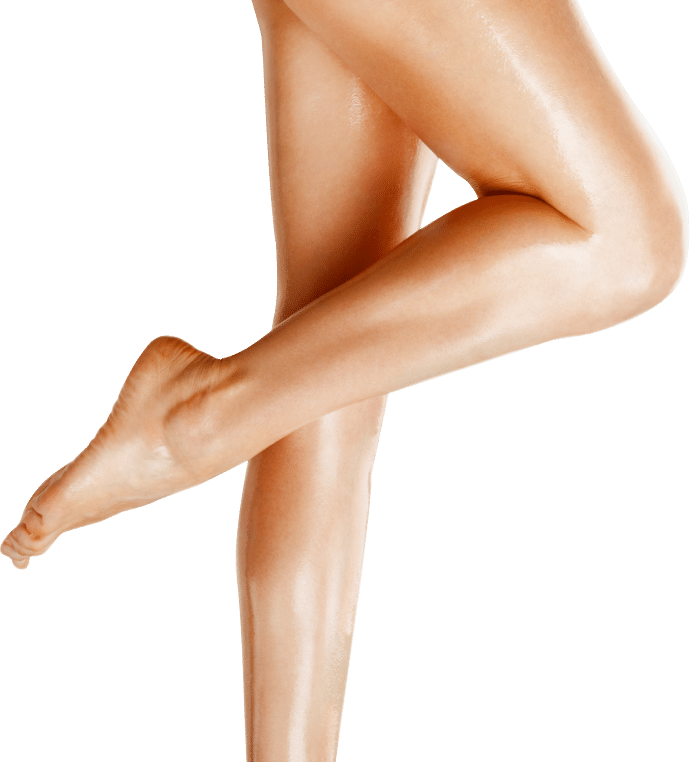
BOOK AN APPOINTMENT
Do you have any symptoms? Consult now with one of the Best Vein Specialist in New Jersey
Endovenous Laser Ablation
Endovenous laser ablation (EVLA) is a minimally invasive treatment that uses laser energy to treat large varicose veins. During the procedure, a small laser fiber is inserted into the affected vein through a tiny incision in the skin. The laser heats the inside of the vein, causing it to collapse and close off. This procedure treats varicose veins and underlying venous insufficiency, thus addressing the root cause of leg cramps.
Radiofrequency Ablation
Radiofrequency ablation (RFA) is another minimally invasive treatment for varicose veins that uses heat to close off the affected vein. During the procedure, a thin catheter is inserted into the vein through a small incision in the skin. The catheter is then heated using radiofrequency energy, causing the vein to collapse and close off. This procedure treats varicose veins and underlying venous insufficiency, thus addressing the root cause of leg cramps.
VenaSeal
VenaSeal is a newer, minimally invasive treatment for varicose veins that uses a medical adhesive to close off the affected vein. During the procedure, a small amount of medical adhesive is injected into the vein using a small catheter. The adhesive seals the vein shut, allowing blood to reroute to healthier veins. This procedure removes large, dilated varicose veins that may cause leg cramps and other symptoms.
Ambulatory Phlebectomy
Ambulatory phlebectomy is a minimally invasive procedure used to remove larger varicose veins. During the procedure, a small incision is made in the skin near the affected vein. A special tool is then used to remove the vein in small sections. The procedure is performed under local anesthesia and takes less than an hour to complete. Ambulatory phlebectomy also removes large, bulging varicose veins, thus minimizing the risk of leg cramps.
Stretch and Massage the Muscles
If you experience a leg cramp, one of the best things you can do is stretch and massage the muscles. Gently stretching the affected muscle can help relieve the cramp, while massaging the muscles can help increase blood flow and reduce the risk of future cramps. You can also try applying heat or cold to the affected area, or taking a warm bath to help relax the muscles.
Wear Compression Stockings
If you have chronic venous insufficiency or varicose veins, wearing compression stockings can help reduce the risk of leg cramps. Compression stockings are tight-fitting socks that help improve blood flow in the legs by applying pressure to the veins. This can help reduce swelling and improve circulation, reducing the risk of leg cramps.
Preventing Leg Cramps
While leg cramps can be painful, there are steps you can take to prevent them from occurring in the first place. Some tips for preventing leg cramps include:
- Staying hydrated: Dehydration can increase the risk of leg cramps, so it’s important to drink plenty of water throughout the day.
- Eating a balanced diet: Eating a diet rich in potassium, magnesium, and calcium can help reduce the risk of leg cramps.
- Stretching before exercising: Stretching before exercising can help prevent muscle strain and reduce the risk of leg cramps.
- Avoiding standing or sitting for long periods: Sitting or standing in one position too long can increase the risk of leg cramps, so it’s important to take breaks and move around.
Visit New Jersey Vein Treatment
If you’re experiencing leg cramps, it’s important to seek medical attention to determine the root cause of your condition. At New Jersey Vein Treatment, we specialize in diagnosing and treating venous insufficiency and varicose veins, which are common causes of leg cramps. Our board-certified vein doctors use state-of-the-art diagnostic tools and minimally invasive treatments to provide personalized care to each of our patients.
At New Jersey Vein Treatment, we offer free insurance verification to all of our patients, even before their first appointment. We understand that navigating the world of insurance can be confusing, which is why we’re committed to providing our patients with the information they need to make informed decisions about their health. Don’t let leg cramps hold you back. Contact us today to schedule a consultation and learn more about your condition.
New Jersey Vein Treatment has multiple locations throughout New Jersey to provide our patients with convenient access to high-quality vein care. Our clinics are located in Clifton, Paramus, Woodland Park, Woodbridge Township, and Scotch Plains. If you’re in or around Scotch Plains, you can find us at 2253 South Avenue, Suite 2, between the garden state parkway and NJ-78.
NJ Vein Doctors
Meet our team of New Jersey Vein Treatment Specialists
Vein Treatments are covered by most major medical insurances, including Medicare. Call us today to verify your insurance for FREE >
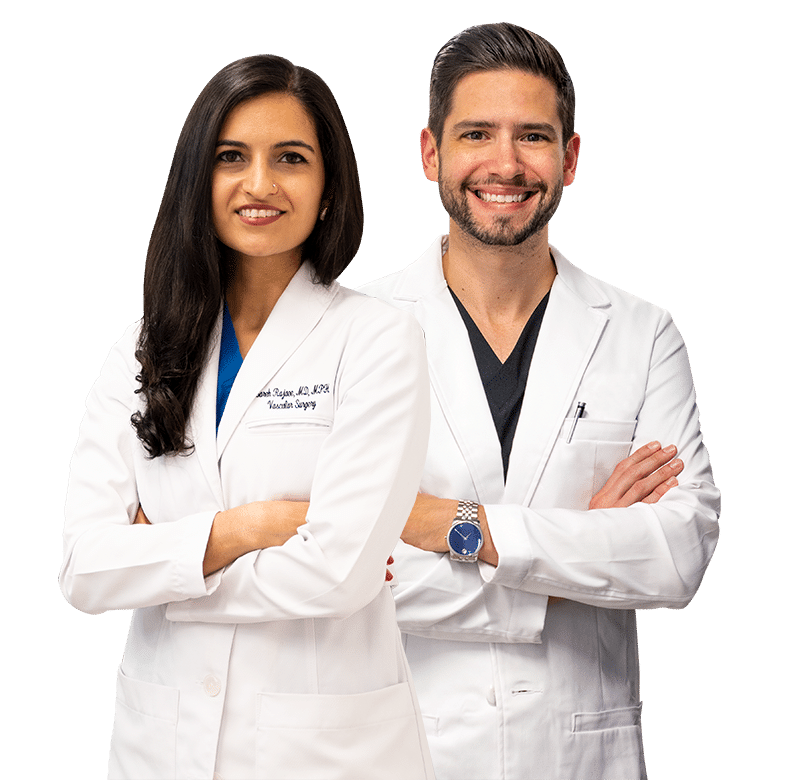
Meet our Team of Top Vein Specialists in New Jersey
Contact us
CALL US
Speak instantly with one of our team members; they will answer any questions you may have regarding insurance coverage, booking an appointment and our vein treatment locations. (973) 946-8082
BOOK APPOINTMENT
Visit our Book Appointment page and instantly request an appointment at the New Jersey vein center. We offer Free Insurance Verification before your appointment.
